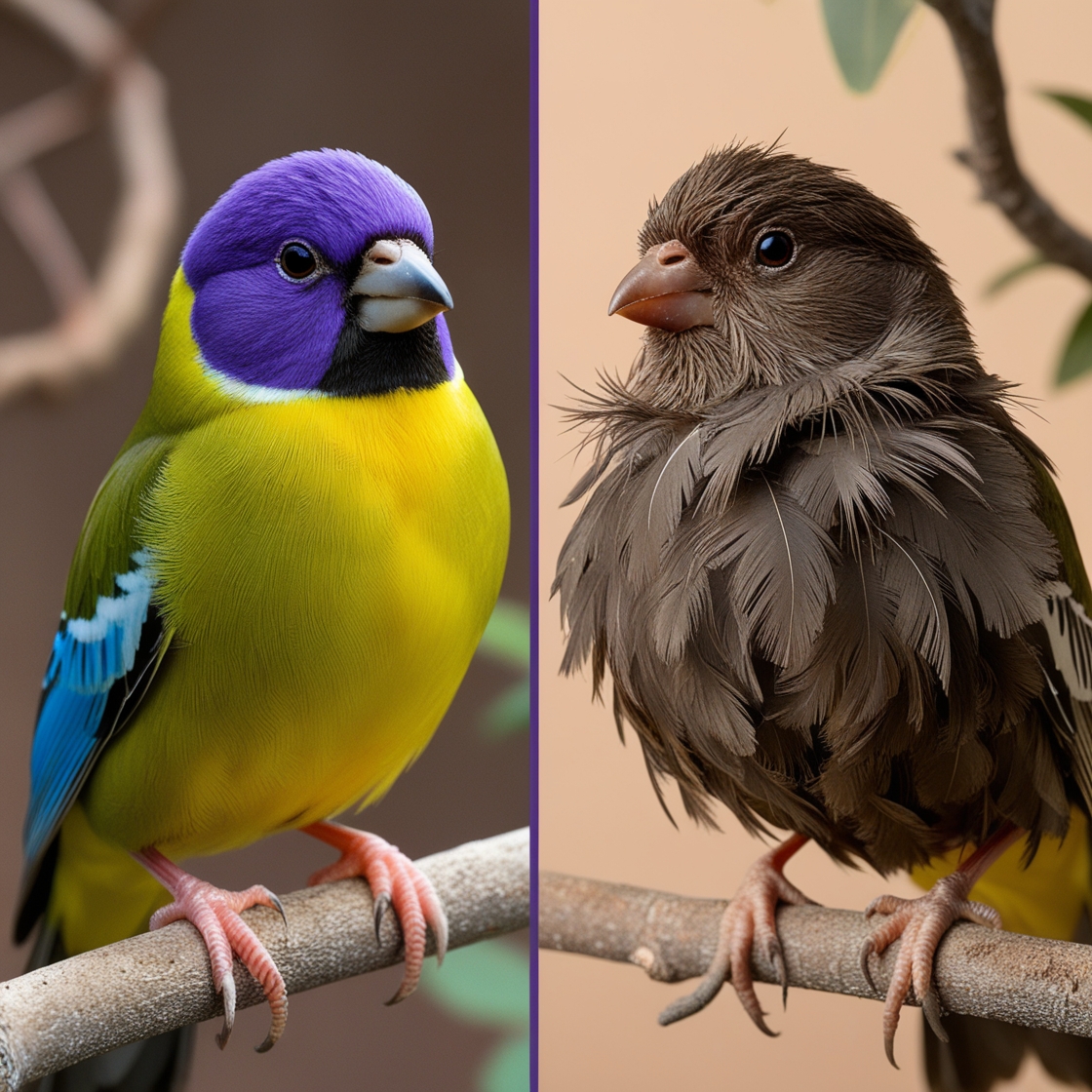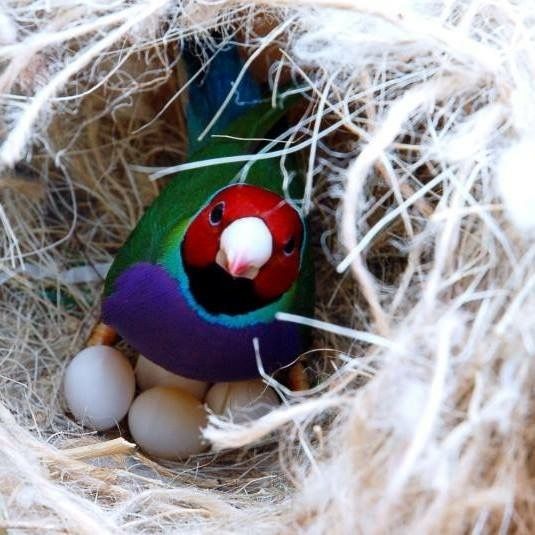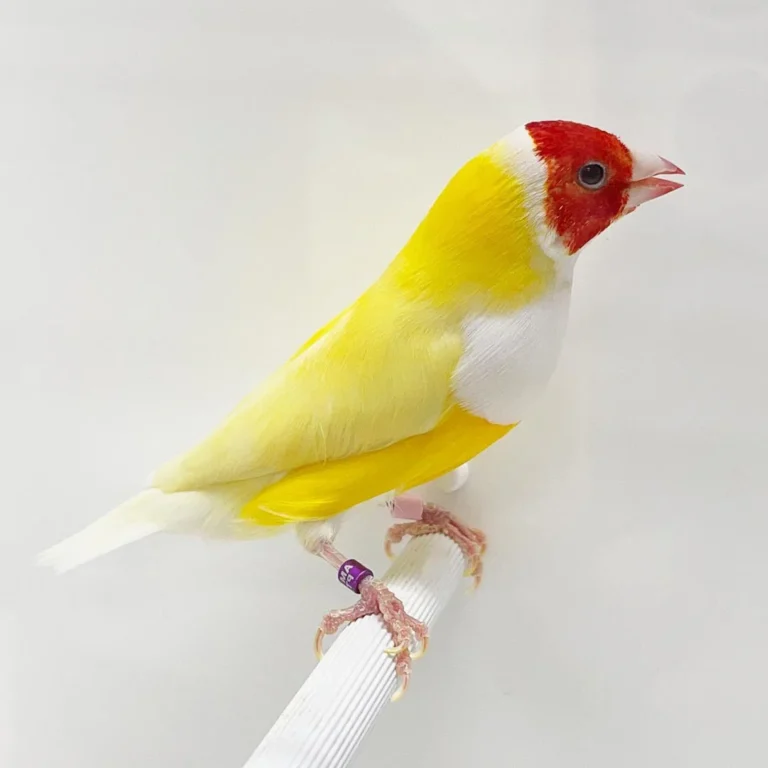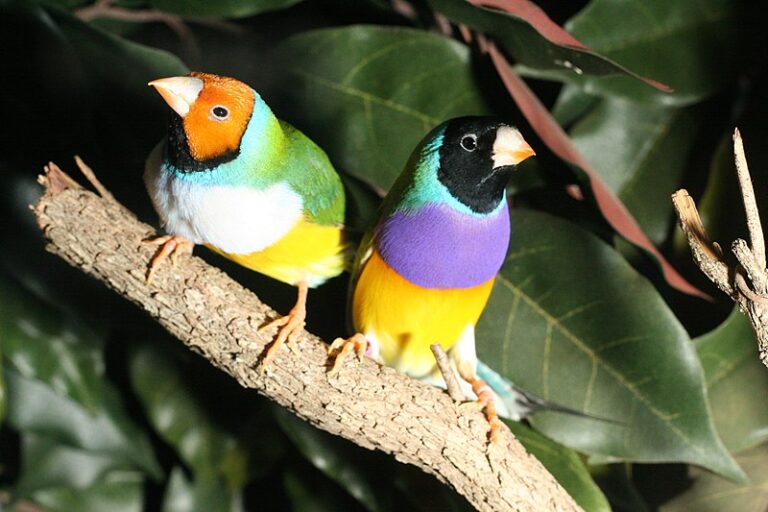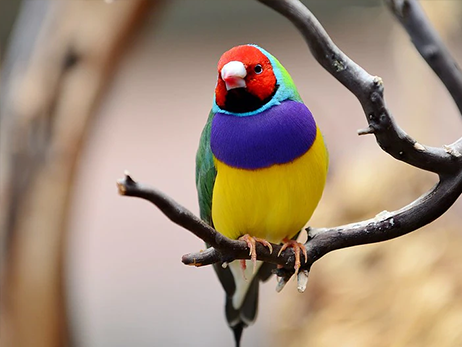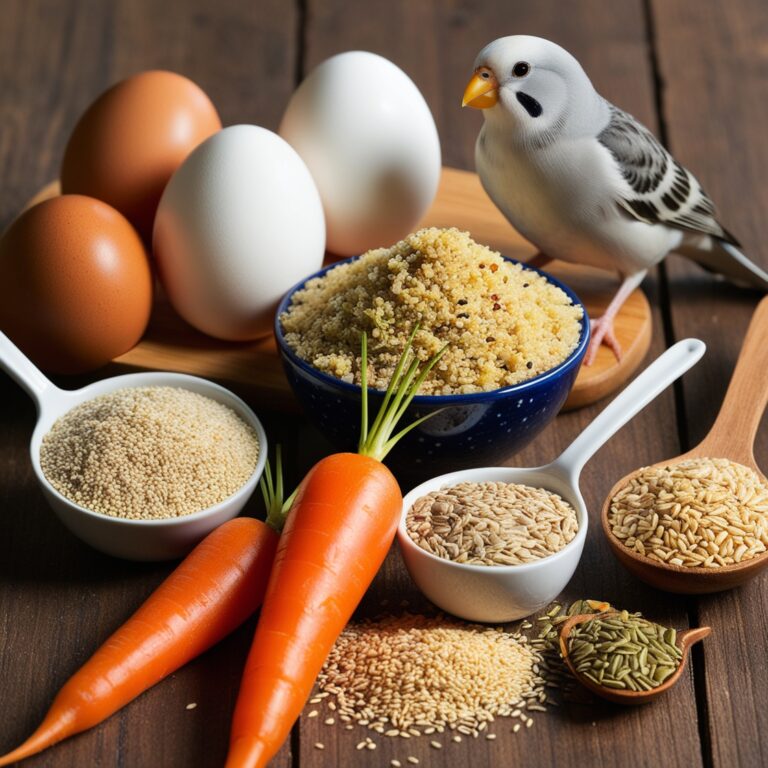Gouldian Finch Gastric Yeast Infection in 2024
Gouldian Finch Gastric Yeast: Symptoms, Prevention, and Treatment
Gouldian finches are among the most beautiful and vibrant bird, admired for their striking colors and delicate nature. Yet, these exquisite birds are also highly susceptible to various health challenges, one of the most concerning being gastric yeast infections. This condition, often overlooked by bird owners, can cause significant discomfort and, if left untreated, lead to severe complications. Understanding Gouldian Finch Gastric Yeast infections is crucial for keeping your bird healthy and content.
A closer look at the causes, symptoms, and treatments for this common ailment can make all the difference in safeguarding the health of your Gouldian finches.
What Is Gouldian Finch Gastric Yeast?
Gastric yeast, also known as Macrorhabdus ornithogaster, is a type of fungal infection that primarily affects the digestive system of birds. In finches, particularly Gouldian finches, this yeast invades the stomach lining, leading to a condition commonly referred to as “going light” due to the bird’s drastic weight loss.
The yeast disrupts normal digestion, often resulting in malnutrition and other health issues. It’s a condition that requires swift attention, as it can worsen rapidly without proper intervention.
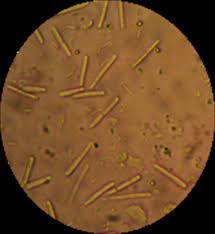
Causes of Gouldian Finch Gastric Yeast
Gouldian finch gastric yeast infections generally arise from a combination of stress, poor diet, and improper hygiene. Stressors such as moving to a new environment, overcrowding, or sudden changes in temperature can weaken a bird’s immune system, making it more susceptible to infections. Additionally, inadequate nutrition, especially diets low in essential vitamins and minerals, can compromise a finch’s ability to fend off fungal infections like gastric yeast.
It’s worth noting that this yeast is contagious, spreading through contaminated water, food, or feces. In aviaries, the infection can quickly transfer from bird to bird if preventive measures aren’t taken.
Symptoms of Gastric Yeast in Gouldian Finches
Identifying the symptoms of a gastric yeast infection in Gouldian finches can be tricky, particularly in the early stages. However, there are a few key signs to watch for:
- Weight Loss: Often, the most noticeable sign of a gastric yeast infection is sudden and unexplained weight loss. This is due to the yeast’s interference with nutrient absorption.
- Lethargy: Affected birds tend to become less active and may appear unusually tired or sluggish.
- Fluffed Feathers: When a bird feels unwell, it often fluffs up its feathers to conserve heat. Persistent feather fluffing can be a sign of underlying illness.
- Changes in Droppings: You may notice that the droppings become more liquid or have an unusual appearance, indicating digestive issues.
- Loss of Appetite: Birds with gastric yeast often show a diminished interest in food or may eat but fail to gain weight.
- Difficulty Breathing: In more severe cases, finches may experience respiratory distress, which is a late-stage symptom of the infection.
It’s essential to keep a close eye on these symptoms, as they can develop slowly and may be easily overlooked until the bird’s health is severely compromised.
Diagnosing Gouldian Finch Gastric Yeast
If you suspect your Gouldian finch may have a gastric yeast infection, consulting with an avian veterinarian is critical. Diagnosis typically involves a microscopic examination of the bird’s droppings or a swab from the crop or cloaca. The presence of Macrorhabdus ornithogaster in these samples confirms the infection.
Veterinarians may also conduct additional tests to assess the severity of the infection and determine if other complications, such as secondary bacterial infections, are present.
Treatment Options for Gouldian Finch Gastric Yeast
Treating gastric yeast infections in Gouldian finches can be challenging but is not impossible with timely intervention. The most common treatments involve antifungal medications. Here’s a breakdown of the typical treatment plan:
- Medications: Antifungal drugs like Amphotericin B and Nystatin are often prescribed to combat the yeast. These medications may be administered orally or in water, depending on the severity of the infection and the bird’s condition.
- Improved Diet: Ensuring your finch receives a balanced and nutritious diet is essential for recovery. Focus on foods rich in vitamins A, D, and E, along with proper protein levels. A pellet-based diet supplemented with fresh fruits and vegetables can be beneficial.
- Probiotics: Probiotics may help restore healthy gut flora, supporting the bird’s digestive system as it recovers from the yeast infection.
- Quarantine: Infected birds should be quarantined to prevent the spread of the infection to other finches. Proper hygiene, including regularly cleaning food and water dishes, is crucial.
It’s important to follow the treatment plan diligently and monitor your bird closely throughout the recovery process. In severe cases, hospitalization may be required to provide intensive care and ensure the bird receives sufficient hydration and nutrition.
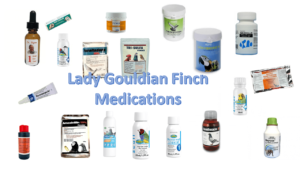
Preventing Gouldian Finch Gastric Yeast Infections
As the old adage goes, prevention is better than cure. This rings especially true for Gouldian finches, whose delicate constitutions make them prone to infections. To reduce the risk of gastric yeast, implement these preventive measures:
- Maintain Cleanliness: Regular cleaning of cages, perches, and feeding dishes can prevent the buildup of harmful bacteria and fungi that can lead to infections.
- Provide a Balanced Diet: A nutritious and varied diet will boost your bird’s immune system, making it less vulnerable to diseases. Avoid excessive seed-based diets that lack essential vitamins and minerals.
- Minimize Stress: Ensure your finch lives in a stress-free environment. Avoid overcrowding cages, provide ample space for each bird, and maintain a consistent temperature in their habitat.
- Quarantine New Birds: If you bring new birds into your aviary, it’s vital to quarantine them for at least a month. This precaution can help prevent the introduction of gastric yeast or other infections into your existing flock.
Gouldian Finch Gastric Yeast: A Caregiver’s Experience
As a bird enthusiast and Gouldian finch owner, my experience with gastric yeast taught me just how fragile these birds can be. I first noticed my finch, Luna, becoming less active and fluffing her feathers more than usual. At first, I attributed it to a change in weather, but soon after, she began losing weight despite eating normally.
A visit to the vet confirmed my worst fear—gastric yeast. Fortunately, with quick intervention, including a combination of antifungal medication and a revised diet plan, Luna made a full recovery. The experience reinforced the importance of observing subtle changes in behavior and health, as early detection can make all the difference in treatment outcomes.
This firsthand experience also prompted me to be more proactive in preventing such infections. Now, I ensure that all my birds live in an environment that’s meticulously clean, with a diet that supports their overall health and resilience.
The Importance of Early Detection
Early detection is crucial when dealing with Gouldian Finch Gastric Yeast. Unfortunately, many bird owners are unaware of the early symptoms, leading to delays in treatment. Given how quickly the infection can progress, it’s vital to act at the first sign of trouble.
Routine health checks, including regular observation of your bird’s weight, droppings, and activity levels, can help you catch the infection in its early stages. If your bird starts showing signs of lethargy or weight loss, don’t hesitate to consult a veterinarian.
Common Myths About Gastric Yeast Infections in Gouldian Finches
There are several misconceptions surrounding gastric yeast infections in Gouldian finches, and it’s important to clear them up to avoid missteps in care:
- Myth 1: Only Sick Birds Get Gastric Yeast
While gastric yeast often affects birds with weakened immune systems, healthy birds can also become infected, especially in environments with poor hygiene or contaminated food and water. - Myth 2: Antibiotics Cure Gastric Yeast
Antibiotics are ineffective against fungal infections like gastric yeast. Antifungal medications are the appropriate treatment, and antibiotics should only be used if there’s a secondary bacterial infection. - Myth 3: It Will Go Away on Its Own
Ignoring a gastric yeast infection can have fatal consequences. This condition requires medical intervention and will not resolve without proper treatment.
Conclusion
Gouldian Finch Gastric Yeast infections are a serious but manageable condition. Early detection, combined with proper treatment and preventive care, is key to ensuring your finch lives a long, healthy life. Whether you’re a seasoned bird owner or new to aviculture, understanding the signs of gastric yeast and knowing how to respond can make all the difference in maintaining the vitality of your birds.
FAQs
What causes gastric yeast infections in Gouldian finches?
Gastric yeast infections are caused by the fungus Macrorhabdus ornithogaster. It thrives in birds with weakened immune systems, often due to stress, poor nutrition, or unsanitary living conditions.
How do I know if my finch has a gastric yeast infection?
Common symptoms include weight loss, lethargy, fluffed feathers, changes in droppings, and loss of appetite. A diagnosis from an avian veterinarian is needed to confirm the infection.
Can gastric yeast spread to other birds?
Yes, gastric yeast is contagious and can spread through contaminated food, water, or direct contact between birds. Quarantining infected birds is essential to prevent an outbreak.
What is the best treatment for Gouldian Finch Gastric Yeast?
Treatment typically involves antifungal medications, such as Amphotericin B or Nystatin. Along with medication, improving the bird’s diet and minimizing stress are essential for recovery.
How can I prevent gastric yeast in my finch aviary?
To prevent gastric yeast infections, maintain strict hygiene practices, provide a balanced diet rich in essential nutrients, and reduce environmental stressors. Quarantine new birds before introducing them to your flock.
Is Gouldian Finch Gastric Yeast fatal?
Without treatment, gastric yeast can be fatal due to malnutrition and weakened immunity. However, with prompt medical intervention, many birds can make a full recovery.
